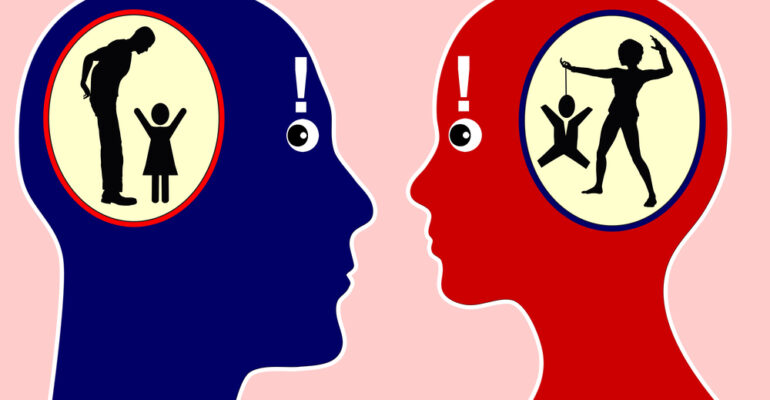Who’s Speaking? The Power of Transactional Analysis Therapy
Be Aware: Are You Speaking from Your Parent, Adult, or Child?
In the heat of an argument, in the quiet of a relationship, in the discomfort of a moment misunderstood, we speak. But have we ever paused to ask:
- Who is speaking through me right now?
- Is it the voice of reason? The echo of criticism? The cry of a wounded child?
Transactional Analysis (TA) Therapy teaches us that within each of us are three distinct “voices” or ego states: the Parent, the Adult, and the Child.[1] These voices don’t just shape what we say, they shape how we live, how we love, and how we understand ourselves and others. They are the invisible drivers of our communication, our decisions, and our emotional reality.
The Parent: Voices of the Past
The Parent ego[2] state is our internalized memory of the authority figures from our childhood: parents, teachers, caregivers, culture. It is the voice of “should,” “must,” and “never.”[3] Sometimes it nurtures. Sometimes it condemns.
- The Critical Parent says: “You’re not doing it right.”
- The Nurturing Parent says: “I’m here. You’re safe. You matter.”
When we speak from our Parent state, we are often reliving the past, not responding to the present. We may criticize, rescue, control, or comfort—not because we’ve made a conscious decision to do so, but because we are repeating what was once modeled to us.
The Child: Echoes of Emotion
The Child ego state[4] is where our emotions, creativity, fears, and early coping strategies live. It’s the part of us that once felt helpless, delighted, afraid, or rebellious.
- The Free Child laughs, plays, and dreams.
- The Adapted Child apologizes too quickly, hides, or rebels.
When we speak from our Child state, we might feel intensely and react impulsively. We might pout, withdraw, explode—or plead for love and approval without knowing why.
In that moment, we are not adults having a conversation—we are children asking not to be abandoned.
The Adult: The Power to Choose
The Adult ego state[5] is the centered self. Present. Observing. Choosing. It is the only voice that isn’t borrowed. It is not ruled by the past or distorted by emotion.
The Adult says:
- “I feel hurt by what you said. Can we talk about it?”
- “Let me think this through before I respond.”
- “I can take care of myself.”
This is the state of agency, clarity, and balance.
It listens to both the Parent and the Child without being hijacked by them. It updates old beliefs with new information. It rewrites outdated scripts. It leads us forward.
Becoming Aware: Who’s Speaking Right Now?
In TA therapy, one of the most transformative questions we can ask ourselves is:
Which part of me is speaking?
- Am I reacting from an old wound? (Child)
- Am I repeating what someone else used to say to me or about me? (Parent)
- Or am I responding from a place of truth, awareness, and choice? (Adult)
This simple awareness is revolutionary. It allows us to pause before reacting, to respond rather than relive, and to transform unconscious patterns into conscious decisions.
Healing Through Ego State Awareness
When we become fluent in our own internal language, we can change the dialogue.[6]
- We can silence the Critic and invite the Nurturer.
- We can soothe the frightened Child and give them voice.
- We can let the Adult lead—not in cold logic, but in integrated, compassionate truth.
This is how healing happens in TA: not by erasing our past, but by understanding who is speaking from it—and choosing whether we want that voice to keep guiding our future.
From Reaction to Relationship
Imagine a world where more of our conversations come from the Adult. Where partners say, “I felt dismissed earlier—can we talk?” instead of, “You never listen to me!” Where parents say, “Tell me what you’re feeling,” instead of, “Stop crying!” Where leaders say, “Let’s find a solution together,” instead of, “Why can’t you figure this out?”
This is not only possible. It is a practice. And it begins with awareness.
Final Reflection: The Practice of Presence
In every moment, you have a choice:
- To parent yourself harshly or gently.
- To let the wounded Child react, or the Free Child play.
- To pause, breathe, and let your Adult speak.
Transactional Analysis gives us a map. Ego state awareness gives us the compass. Presence gives us the power.[7]
To change a conversation.
To change a relationship.
To change a life.
So ask yourself now, before your next sentence, your next decision, your next silence:
- Who’s speaking?
- Would you like to learn more about Transactional Analysis Therapy?
If so, we invite you to join us for our virtual conference on May 9, 2025, from 9-1pm (EDT) via Zoom, where we will explore the transformative power of TA in greater depth. Together, we will uncover how to help your patients and clients begin living a life led by awareness, choice, and authentic connection.
Come as you are—regardless the awareness!
[1] Thomson, George. “The identification of ego states.” Transactional Analysis Journal 2.4 (1972): 46-61.
[2] Hollins Martin, Caroline J. “Transactional analysis: A method of analysing communication.” British Journal of Midwifery 19.9 (2011): 587-593.
[3] Williams, John E., et al. “Construct validity of transactional analysis ego states: free child, adult, and critical parent.” Transactional Analysis Journal 13.1 (1983): 43-49.
[4] Hargaden, Helena, and Charlotte Sills. “Deconfusion of the child ego state: A relational perspective.” Transactional Analysis Journal 31.1 (2001): 55-70.
[5] Williams, Kathryn B., and John E. Williams. “The assessment of transactional analysis ego states via the adjective checklist.” Journal of personality assessment 44.2 (1980): 120-129.
[6] van Rijn, Biljana, et al. “Impact of transactional analysis psychotherapy training on self awareness and ability for contact.” International Journal of Transactional Analysis Research & Practice 2.1 (2011): 16-24.
[7] Lawrence, Lesa. “Applying transactional analysis and personality assessment to improve patient counseling and communication skills.” American Journal of Pharmaceutical Education 71.4 (2007): 81.




